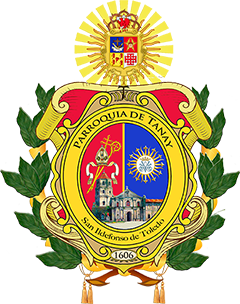SUNDAY REFLECTIONS | Second Sunday of Easter
By Social Communications
Published on April 27, 2025
John 20:19–31 — “Peace be with you… Blessed are those who have not seen and have believed.”
The Second Sunday of Easter is a continuation of the joy of the Resurrection, but it is also something more: the Church celebrates it as Divine Mercy Sunday, a day when we reflect on the mercy of Jesus poured out upon the world through His wounds, His forgiveness, and the gift of new life.
The Gospel takes us back to the evening of Easter Sunday. The disciples are hiding behind locked doors, afraid and confused. Then, suddenly, Jesus comes and stands in their midst. His first words are full of tenderness: “Peace be with you.” These are not just words of comfort; they are a gift. Jesus brings true peace—the peace that comes from His victory over sin and death. His presence changes everything.
To prove that it is truly Him, Jesus shows them His hands and His side. He shows them His wounds, not to shame them for their fear, but to reveal the price of His love. These wounds are now signs of glory, proof that death has been conquered. He then breathes on them and says, “Receive the Holy Spirit.” This moment is a kind of new creation. Just as God breathed life into Adam, Jesus breathes new life into His Church. He gives the apostles the authority to forgive sins—a divine power that continues today through the Sacrament of Confession.
But Thomas, one of the Twelve, was not there that night. When the others tell him that they have seen the Lord, he refuses to believe. He wants proof—he wants to see and touch the wounds himself. A week later, Jesus comes again, and this time Thomas is with them. Jesus does not scold him. Instead, He invites Thomas to come closer: “Put your finger here… do not be unbelieving, but believe.” Thomas falls to his knees and makes a powerful profession of faith: “My Lord and my God!”
This moment speaks to every one of us. Like Thomas, we all have moments of doubt, fear, or confusion. But Jesus is patient. He meets us where we are. He shows us that His wounds are not signs of failure, but of mercy. And He gently calls us to deeper faith.
Then Jesus says something very important for all future believers: “Blessed are those who have not seen and have believed.” That includes us. We have not seen Jesus with our eyes, but we are invited to believe through the witness of the apostles, the Scriptures, the sacraments, and the life of the Church.
This Sunday is also Divine Mercy Sunday, a feast given to the Church through the visions of St. Faustina Kowalska, a Polish nun who saw Jesus in His resurrected glory, radiating mercy. He told her, “The greater the sinner, the greater the right he has to My mercy.” The Church, in her wisdom, placed this feast right after Easter to remind us that the Resurrection is not just a triumph—it is a flood of mercy for every soul who turns to Christ with trust.
This Gospel calls us to reflect: Do I truly believe in the risen Jesus, even when I don’t see or feel Him? Do I trust in His mercy, especially when I fall? Do I bring my doubts, fears, and sins to Him, believing that He will not reject me?
Jesus’ message is simple and powerful: Peace be with you. Do not be afraid. Believe. And come receive My mercy. Just like the apostles, we are sent into the world to share this peace and mercy with others.
Let us, then, echo the words of Thomas not only with our lips, but with our lives: “My Lord and my God!”



